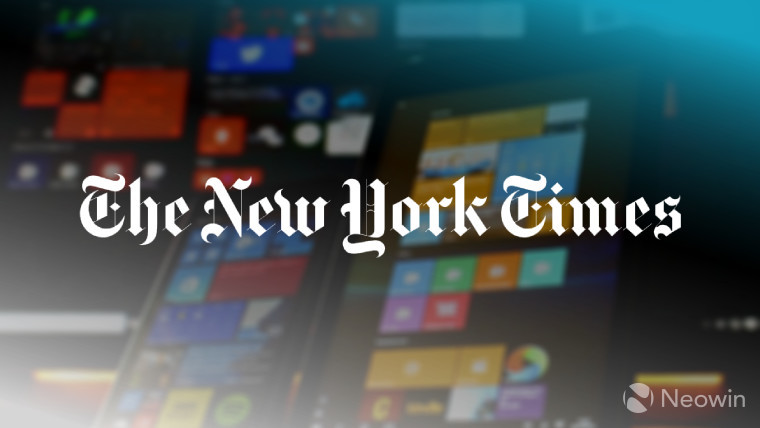
The legal fight over how copyrighted content may be used to train generative AI models took a big step today. The New York Times has filed a lawsuit against both Microsoft and OpenAI in the Federal District Court in Manhattan. The media company, best known for their newspaper and website, claim that AI models from both companies illegally accessed "millions of articles published by The Times."
In its own story about its lawsuit, the NY Times stated:
The suit does not include an exact monetary demand. But it says the defendants should be held responsible for “billions of dollars in statutory and actual damages” related to the “unlawful copying and use of The Times’s uniquely valuable works.” It also calls for the companies to destroy any chatbot models and training data that use copyrighted material from The Times.
The article cites examples of how this alleged copyright infringement was conducted. The story says that Microsoft"s Browse with Bing feature, which uses OpenAI"s ChatGPT model, generated "almost verbatim results" from the NY Times"s Wirecutter review site, but did not actually link to Wirecutter, and also removed any financial affiliate links which the site users to generate revenue.
The story adds that the NY Times entered into talks with Microsoft and OpenAI back in April to come up with "an amicable resolution” on this alleged copyright infringement. However, the article says those talks did not result in a mutual agreement. So far, neither Microsoft nor Open AI have issued a statement about this lawsuit.
This is just the latest legal fight over the use of generative AI. In June Microsoft and OpenAI were sued by 16 people, who claim the companies "systematically scraped 300 billion words from the internet, "books, articles, websites and posts – including personal information obtained without consent." In July, OpenAI was sued by authors Paul Tremblay and Mona Awad, who stated the company"s ChatGPT model accessed their copyrighted material from their novels.